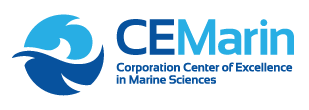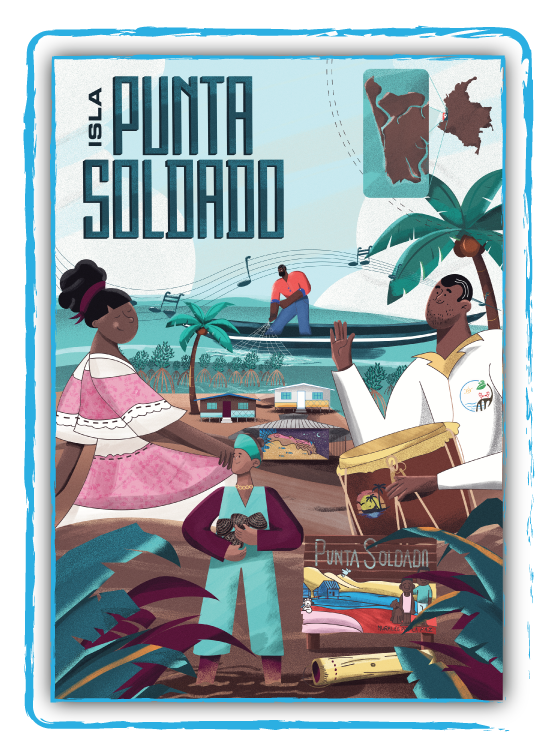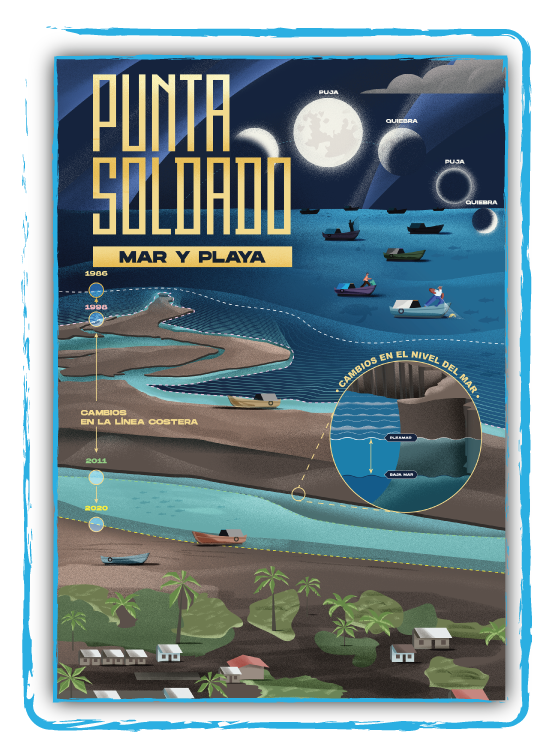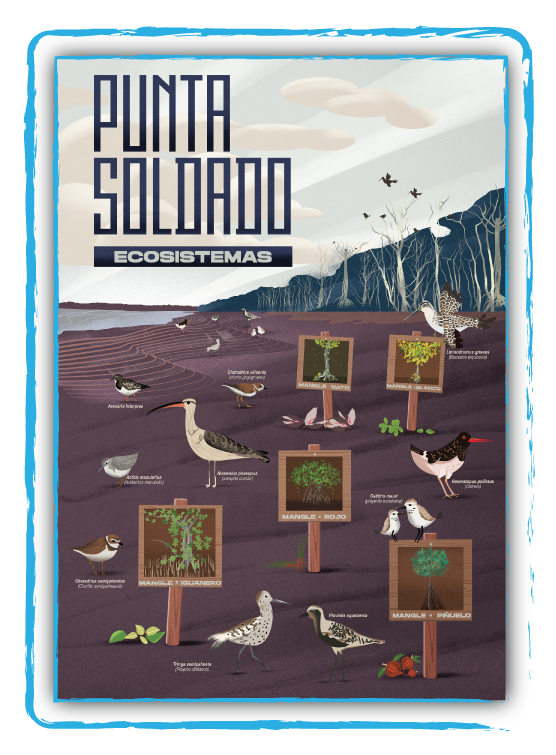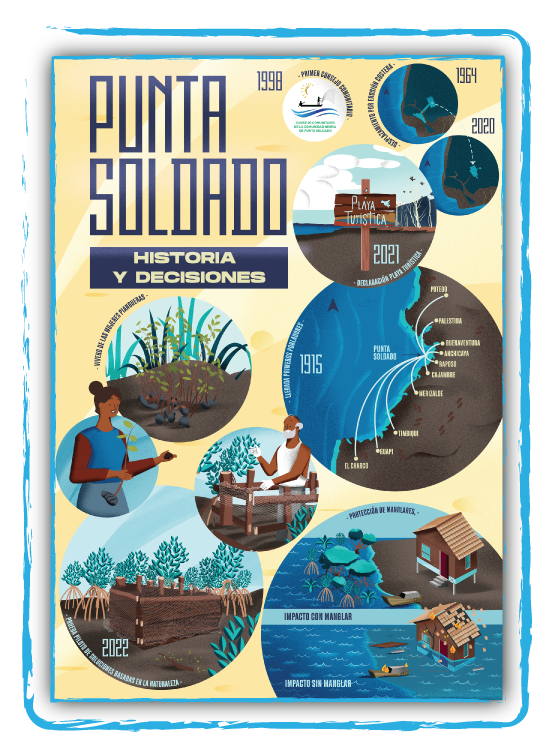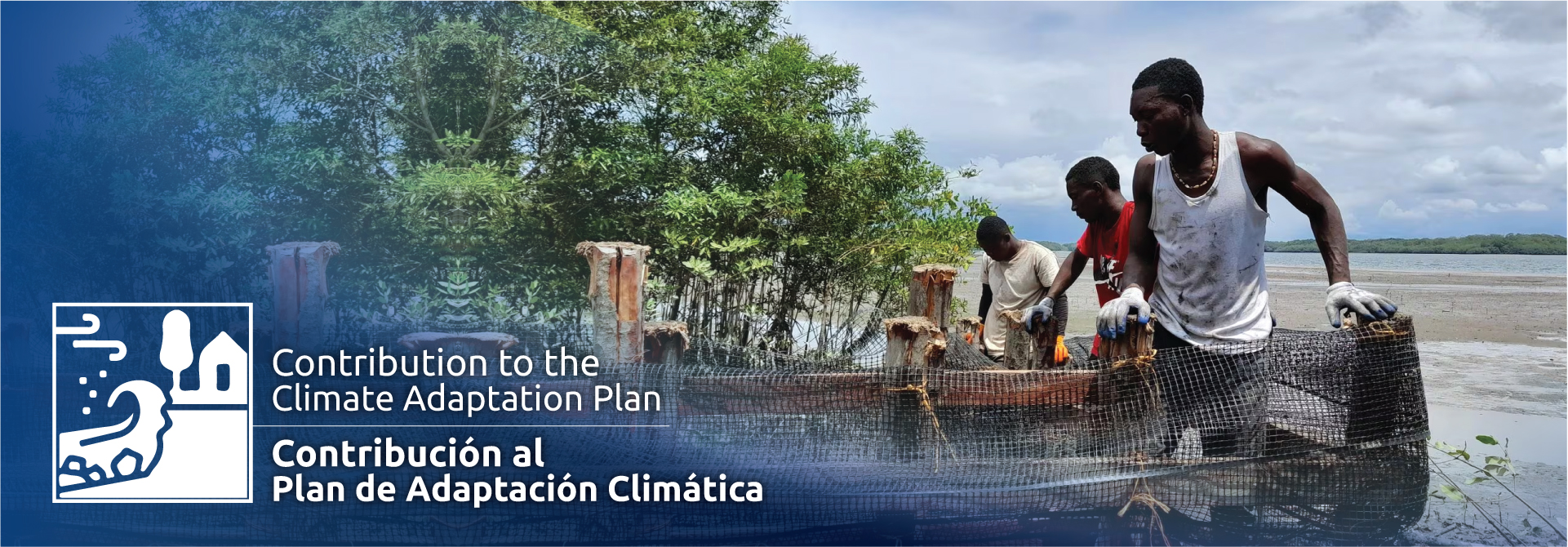
These initiatives are carried out in agreement with the Coastal Solutions Program of Cornell University, United States, which seeks to support young Latin American planners, developers and scientists to implement new solutions to the challenges faced by coastal ecosystems and their communities. In addition, the Universidad Nacional de Colombia is linked to this project through the National Call for Solidarity Extension won in 2019, which seeks to strengthen social innovation between academia and organized vulnerable communities, seeking to improve the quality of life of the latter.
Territorial Center for the Construction of Knowledge and Solutions in Coastal Territories
Punta Soldado Island is a key location for climate adaptation and conservation in the Colombian Pacific. Located in the Buenaventura District, it belongs to the Community Council of the Black Community of Punta Soldado and is part of the Anchicayá National Forest Protectorate Reserve. Additionally, it is recognized as a regional priority site in the Pacific American Migratory Route for the conservation of shorebirds and their habitats.
Since 2019, together with the Community Council, the Coastal Solutions Program of Cornell University, the National University of Colombia, through the National Solidarity Extension Call, and the Calidris Association, among other stakeholders, we have worked jointly on research and extension projects covering various topics, such as conservation, climate adaptation, human well-being, social appropriation of knowledge, socio-ecological systems, and coastal erosion, among others.

Manifesto for Punta Soldado
The Manifesto is an agreement of intent aimed at the coordination between the community, academia, civil society, and the public and private sectors to transcend in the transformation of the territory of the Punta Soldado Community through local/ancestral knowledge, scientific understanding, and innovation.
Currently, the project “Territorial Center for Conservation and Adaptation: a community-scientific tourism initiative based on bioeconomics” is being promoted. Its aim is to strengthen local capacities and promote participation and leadership among young people for the consolidation of a community enterprise that promotes and drives community, nature-based, and scientific tourism as an economic and conservation alternative for its ecosystems.
The vision is to promote tourism that conserves and strengthens the socio-economic fabric, involves the community in decision-making about their territory, and contributes to citizen science and participation.
Contribution to the Climate Adaptation Plan on Punta Soldado Island, Buenaventura, Colombia
The objective of the Climate Adaptation Plan was to obtain and transfer technical and scientific knowledge to local communities and decision-makers in Buenaventura Bay regarding coastal vulnerability scenarios and nature-based adaptation strategies. This would allow them to increase their adaptive capacity for a climate change scenario that included sea-level rise and extreme wave events, with Punta Soldado Island serving as a local case study.
The implementation status of coastal policies and sea-level rise was reviewed, satellite images were processed to study coastline variations on Punta Soldado Island, and the variability of sea level on temporal scales associated with waves and climate change was studied and analyzed. Wave and ocean current modeling near Buenaventura Bay during El Niño events was also conducted. All of this was done using numerical tools and the collection of field and secondary information.
Researchers participating in the projects
CEMarin Researchers
Andrés Osorio
Clara Villegas
Carlos Zarate
Gladys Bernal
Ligia Urrego
Ana Isabel Marquez
CEMarin Early Stage Researchers
Natalia Zapata Delgado
Ballantyne Puin Castaño
Hanna Lucieth Bohorquez Alzate
Cesar David Padilla
Ana Maria Alvarez Villa (estudiante de pregrado)
CEMarin Alumni
Johann Delgado
Do you want to receive more information about our project?
If you need to contact our researchers or are interested in our project, please complete the following form

